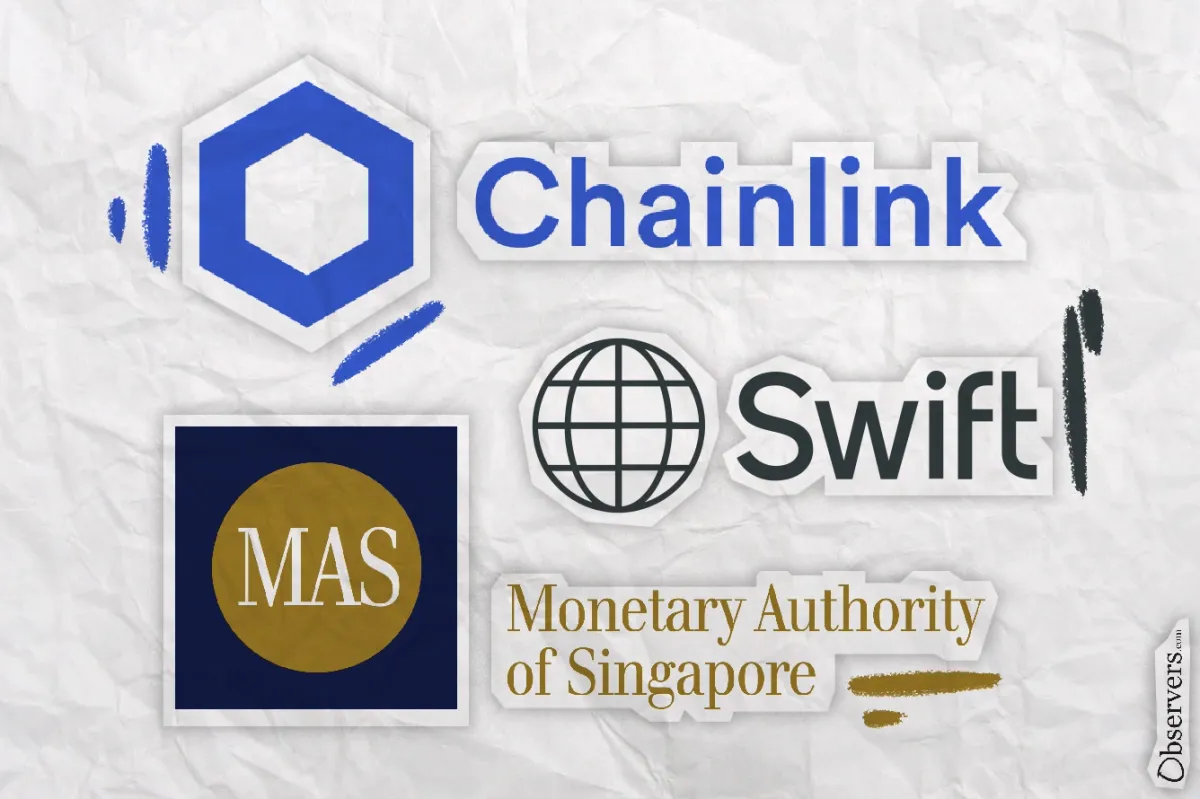
Swift, UBS Asset Management, and blockchain technology provider Chainlink have completed a pilot program that enables financial institutions to settle tokenized fund transactions using existing Swift infrastructure, effectively bridging conventional payment systems and digital assets.
Conducted under the Monetary Authority of Singapore's (MAS) Project Guardian, the initiative tested how financial institutions can leverage Swift's network of over 11,500 institutions across more than 200 countries to facilitate off-chain cash settlements for tokenized funds.
The pilot tackled inefficiencies in the $75 trillion global mutual fund market—an estimate reported by ICI for the second quarter of 2024—where manual processes, settlement delays, and limited real-time transaction visibility increase costs and reduce liquidity. By automating fund subscriptions and redemptions, the project successfully showed that digital assets could be managed without the need for a fully on-chain payment system, streamlining integration with fiat settlements.
"For digital assets to be adopted globally, they must seamlessly integrate with both existing payment systems and digital currencies," said Jonathan Ehrenfeld, Swift's Head of Strategy.
Chainlink Co-Founder Sergey Nazarov highlighted how the platform extended Swift's existing capabilities: "Chainlink is enabling institutions to reuse Swift's infrastructure to facilitate payments for digital asset transactions. This capability will increase the flow of capital and expand the potential user base of digital assets."
The Swift-UBS-Chainlink pilot built upon previous work with SBI Digital Markets to create a Digital Subscription and Redemption system for tokenized funds. This system uses Swift's infrastructure to coordinate interactions between parties, automatically minting or burning fund tokens when investor conditions change.
Launched by MAS in May 2022, Project Guardian is a collaborative initiative involving global policymakers and financial industry players. Its objectives include enhancing market efficiency through asset tokenization, establishing industry standards, developing governance frameworks, and expanding the regulated digital asset ecosystem.
Project Guardian's members include major banks like JPMorgan Chase, Citi, BNY Mellon, DBS, and Standard Chartered, alongside regulators such as the Financial Conduct Authority (UK) and Banque de France. The project, which now includes eight regulatory bodies and over 25 financial institutions, continues to expand, with Germany's Bundesbank joining on Thursday.
This week, Chainlink also announced another Project Guardian trial, connecting Singapore investment platform ADDX with ANZ bank's digital asset division. The pilot tested interoperability between the two institutions' separate private blockchain networks using Chainlink's Cross-Chain Interoperability Protocol (CCIP). CCIP enabled the digital issuance and settlement of commercial paper —a type of short-term corporate debt instrument— between an Australian ANZ client and ADDX while encrypting sensitive transaction data, a requirement for regulatory compliance. This pilot marked the first use of CCIP's private transactions feature, which keeps confidential key trade information, including amounts, counterparty details, and settlement instructions.
The pilots signal a pragmatic turn in digital asset adoption, with financial institutions leveraging existing systems over building new infrastructure. We'll continue to observe whether this approach of connecting TradFi and DeFi through existing networks, rather than replacing them, becomes the blueprint for institutional adoption.

